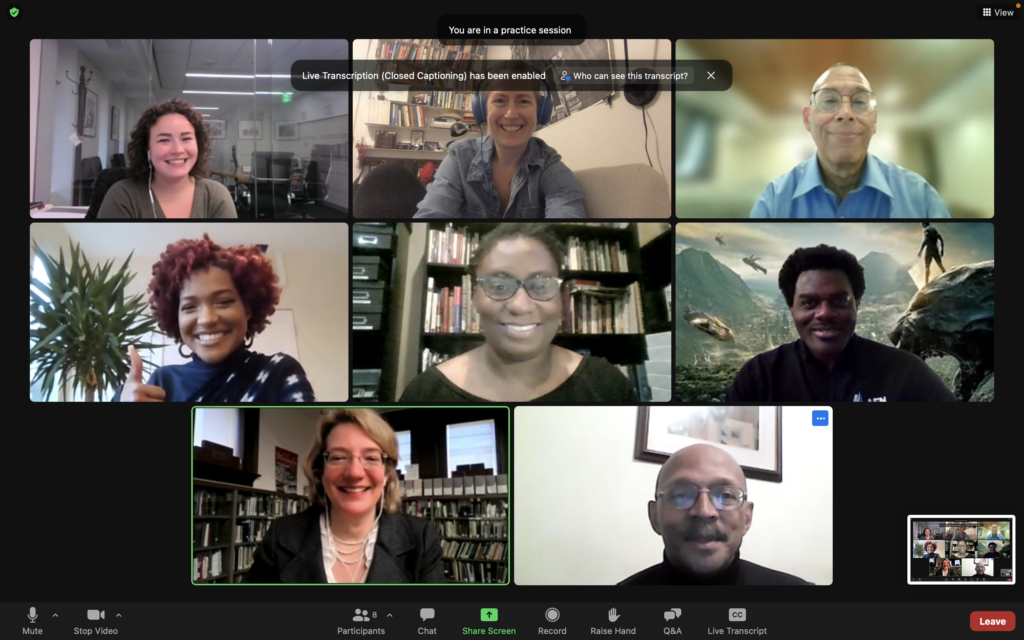In the last few years, Washingtonians witnessed distinctly historic moments locally and nationally—moments that will someday be memorialized in history textbooks. Standing out in our collective memories: May 25, 2020, when the world witnessed Minneapolis police officers murder George Floyd. The wave of responding protests colored the summer of 2020, spreading across the country and fundamentally changing how we talk about issues of social justice and racial equity, including in the District. In 2020, we asked a simple question: Why? At the DC History Center, it is our unique responsibility to answer questions like these with historical context.
Two years ago, on June 16, 2020, the DC History Center introduced Context for Today. If you’re not familiar, Context for Today is one of our core program series featuring online conversations with thoughtful and thought-provoking historians, activists, journalists, and community members. In addition to the live Zoom conversation, we offer a compilation of educational resources for audiences to take a deep dive into the topic. This way, learners can explore at their own pace, follow their curiosity, or perhaps use the materials in the classroom or in conversation with their family and friends.
In our first Context for Today program, “Race and Reform: Police Brutality in DC and its Consequences,” Professors Chris Myers Asch and George Derek Musgrove, authors of the acclaimed Chocolate City: A History of Race and Democracy in the Nation’s Capital (2017), grappled with the legacy of police harassment in our own city. They honored the thousands of protesting Washingtonians who took to the streets and gave context to our anger, hurt, fear, and sadness. In this first program, we realized the importance of meeting injustice with all the tools at our disposal, be it policy, protest, law-making, or education. As one post-event survey respondent wrote:
“The conversation was powerful and poignant. As we look forward we have to look at the past.”
In honor of the one-year anniversary of Context for Today, we reinvigorated our program approach to be more community-guided. We now plan all Context for Today programs with a community partner—an individual or organization with a deep knowledge of the program topic. When program attendees tell us they want to learn more, we know we’ve created an important program:
“It gave me much better insight but also revealed how much I still don’t understand about the issues and the ramifications. With these real-life examples, I realized how superficial my understanding of this history is, and I am interested to learn more about DC history.”
In that spirit, we continue the Context for Today series, having developed feature programs on: DC statehood; segregation in the federal government and in housing; Compensated Emancipation; the 1968 uprising; the fight against the freeways; Salvadoran Americans in DC; Black Latinas; immigrant foodways; and LGBTQ rights. We’ve seen nearly 3,000 registrations across the two years of the series. And because these are virtual programs, they live a second life on YouTube where they have cumulatively had 11,103 views across 12 videos. You can find the entire playlist here.
Some of the most gratifying feedback we’ve received from attendees recognizes that this kind of work is new to the DC History Center; perhaps unimaginable prior to 2020. In my role as program manager, this is a constant reminder of the importance of providing historical context for the present. It is our duty and our obligation to do so in a way that honors and uplifts the experiences of Washingtonians and aims for justice in our city. Along the way, we hope that you learn something new and are challenged to take action and contribute to that vision.
As we embark on year three of the series, it’s our continued goal to make these programs relevant to Washingtonians and provide historical context for the issues of the day.
With that task ahead, we are asking for your help: What questions do you have about today’s DC that can be explained by a deeper historical understanding of our city? Fill out the “Share Your Ideas” form or email me at programs@dchistory.org.
The DC History Center gratefully acknowledges the team who conceived and launched the Context for Today series, especially Jane F. Levey and Maggie Downing, as well as the team that produces it today.
